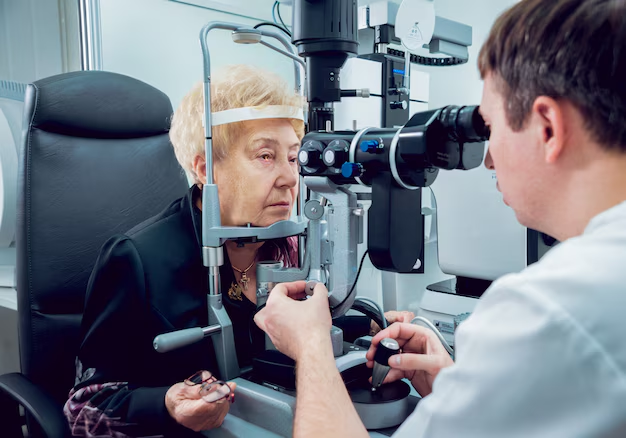Your Guide to Does Medicare Cover Lasik Eye Surgery
What You Get:
Free Guide
Free, helpful information about Medicare Insurance and related Does Medicare Cover Lasik Eye Surgery topics.
Helpful Information
Get clear and easy-to-understand details about Does Medicare Cover Lasik Eye Surgery topics and resources.
Personalized Offers
Answer a few optional questions to receive offers or information related to Medicare Insurance. The survey is optional and not required to access your free guide.
Is LASIK Eye Surgery Covered by Medicare? Here's What You Need to Know
LASIK eye surgery is a popular option for those looking to correct vision problems such as myopia, hyperopia, or astigmatism without the hassle of glasses or contact lenses. However, before scheduling this procedure, it’s crucial to understand how it’s covered by insurance, especially Medicare, as many individuals over 65 rely on it for healthcare expenses.
Understanding Medicare Coverage for LASIK
Medicare is a federal health insurance program primarily for people aged 65 and older, but it does not typically cover elective procedures like LASIK eye surgery. This is because LASIK is considered a vision correction procedure rather than a medical necessity, and Medicare tends to cover services and treatments deemed medically necessary.
For those who still require vision care under Medicare, the coverage usually extends to specific services such as cataract surgery, glaucoma tests, and other therapeutically necessary services. Thus, individuals hoping to have LASIK covered by Medicare may need to explore alternative funding methods.
Exploring Other Financial Options
Since Medicare doesn’t typically cover LASIK, exploring other financial options can be a smart move:
Private Vision Insurance: Some private vision insurance plans may offer coverage for elective procedures like LASIK or provide discounts through specified networks. It’s beneficial to check with your provider to see what options are available.
Health Savings Accounts (HSAs) or Flexible Spending Accounts (FSAs): If you have an HSA or an FSA, you can use those funds tax-free to pay for LASIK, significantly reducing out-of-pocket costs.
Payment Plans and Financing: Many eye care clinics offer payment plans or special financing options that break the cost into manageable monthly payments. Be sure to discuss these with your specialist.
Discount Programs: Some companies provide discount programs for LASIK. These might be offered as part of employee benefits or loyalty programs.
Additional Financial Assistance Programs and Opportunities
If you’re exploring LASIK or any other elective procedure, keep in mind that financial assistance can go beyond traditional healthcare planning:
Educational Grants & Scholarships: Although typical for students, certain educational grants or scholarships might cover peripheral educational activities, indirectly freeing up funds for LASIK.
Credit Card Solutions: Consider credit cards offering lower interest rates for larger purchases. Ensure the payment terms match your financial capabilities to avoid excessive debt.
Government Aid Programs: While LASIK itself might not be funded, reducing other expenses through government aid programs for healthcare, housing, or food might allow for better budgeting overall.
Taking Control of Your Financial Health
Understanding the extent of your healthcare coverage and planning financially can greatly impact your ability to afford elective procedures like LASIK. Here are some options to explore for easing the financial burden and enhancing your eye health:
- 🌟 HSA & FSA Contributions: Maximize yearly contributions for big expenses.
- 💳 0% APR Credit Offers: Look for promotional periods to spread out payments.
- 🏥 Vision Insurance: Investigate add-on plans that fit your needs.
- 📑 Employee Benefits: Utilize employer-offered vision benefits or discount programs.
- 🎓 Educational Scholarships: Consider if certain scholarships can offset other expenses, indirectly aiding medical costs.
- 🏛️ Community Programs: Check local nonprofits that may offer assistance for healthcare expenses.
By being informed and proactively seeking out the right programs, you can successfully manage the cost of LASIK surgery while securing your financial well-being.
What You Get:
Free Medicare Insurance Guide
Free, helpful information about Does Medicare Cover Lasik Eye Surgery and related resources.

Helpful Information
Get clear, easy-to-understand details about Does Medicare Cover Lasik Eye Surgery topics.

Optional Personalized Offers
Answer a few optional questions to see offers or information related to Medicare Insurance. Participation is not required to get your free guide.


Discover More
- Am I Elgible For Medicare
- Am I Enrolled In Medicare
- Am I Qualified For Medicare
- Are Adult Diapers Covered By Medicare
- Are Chemotherapy Drugs Covered By Medicare Part d
- Are Colonoscopies Covered By Medicare
- Are Covid Tests Covered By Medicare
- Are Cpap Machines Covered By Medicare
- Are Cpap Supplies Covered By Medicare
- Are Dental Implants Covered By Medicare
